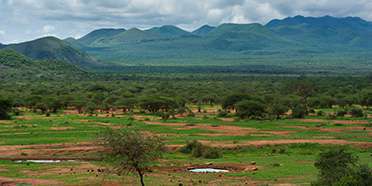
Safari Tours to Tsavo West NP
-
![6-Day Luxury Tour Amboseli, Tsavo East & West, Salt Lick]()
6-Day Luxury Tour Amboseli, Tsavo East & West, Salt Lick
$2,426 pp (USD)
Kenya: Private tourLuxuryLodge & Tented Camp
You Visit: Nairobi (Start), Amboseli NP, Tsavo West NP, Taita Hills WS, Tsavo East NP, Watamu (End)

Family Leisure Africa Safaris
5.0/5 – 21 Reviews
-
![14-Day Kenya Wildlife Safari & Beach Holiday]()
14-Day Kenya Wildlife Safari & Beach Holiday
$4,681 to $6,534 pp (USD)
Kenya: Private tourLuxuryLodge & Tented Camp
You Visit: Nairobi (Start), Ol Pejeta Conservancy (Laikipia Plateau), Lake Nakuru NP, Masai Mara NR, Lake Naivasha (Naivasha), Amboseli NP, Tsavo West NP, Diani Beach, Nairobi (End)

Tekko Tours and Travel
4.9/5 – 139 Reviews
-
![10-Day Kenya 6 Parks Best Wildlife Safari to Diani Beach]()
10-Day Kenya 6 Parks Best Wildlife Safari to Diani Beach
$2,195 pp (USD)
Kenya: Private tourBudgetLodge & Tented Camp
You Visit: Nairobi (Start), Masai Mara NR, Lake Nakuru NP, Hell’s Gate NP, Amboseli NP, Tsavo West NP, Tsavo East NP, Diani Beach, Mombasa (End)

Africa Starpal Safaris
5.0/5 – 150 Reviews

 Kenya Parks
Kenya Parks











